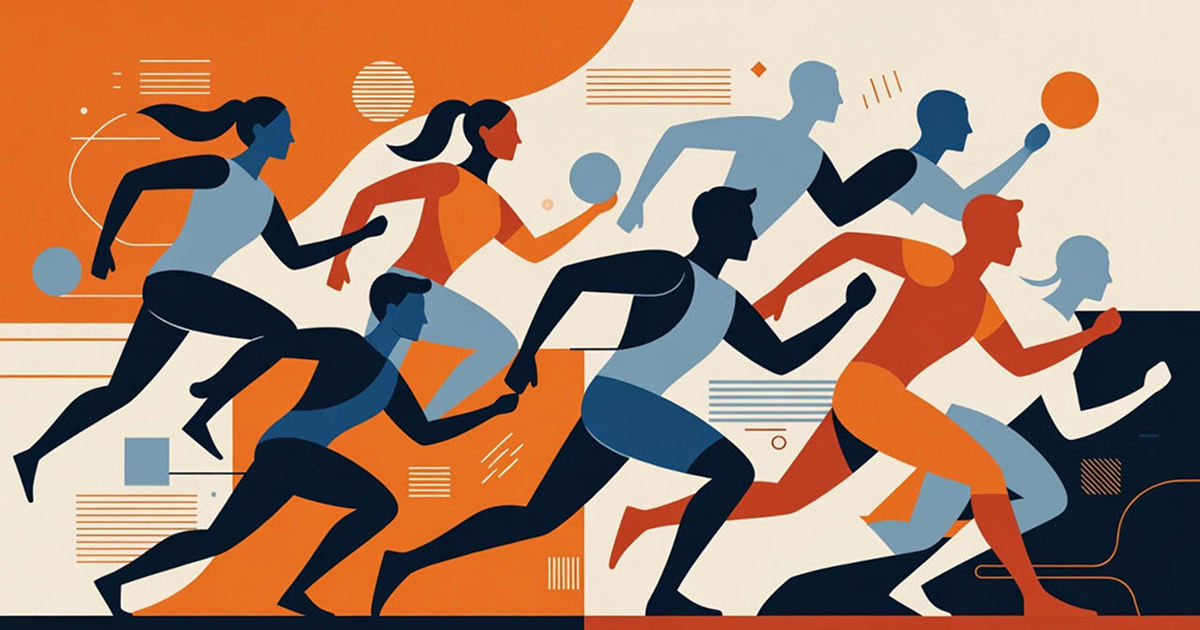Introduction
Extracurricular activities represent a critical but often misunderstood component of investment banking interviews. Candidates obsess over technical preparation and behavioral questions while treating extracurriculars as resume filler, missing the reality that interviewers use these discussions to assess work ethic, leadership ability, teamwork, and cultural fit—qualities that matter as much as DCF modeling skills for succeeding in banking.
The best candidates understand that extracurriculars aren't just credentials to list—they're rich sources of compelling stories that demonstrate you can handle the intensity of banking. A candidate who captained a varsity team while maintaining a 3.7 GPA and leading the investment club signals they can juggle 100-hour work weeks and multiple deal deadlines. Someone who built a successful nonprofit from scratch shows entrepreneurial drive and execution ability that translates to sourcing deals and managing client relationships.
This guide covers which extracurriculars investment banks value most, how to frame your involvement effectively, the storytelling framework for presenting activities compellingly, common mistakes that undermine strong candidates, and how to handle situations where your extracurricular profile isn't conventional.
| Activity Type | Interview Value | Key Skills Demonstrated | Best For |
|---|---|---|---|
| Finance clubs / Student funds | High | Domain interest, analytical skills | Showing genuine finance interest |
| Varsity / Competitive sports | High | Work ethic, teamwork, pressure performance | Time management and grit stories |
| Entrepreneurship / Startups | Moderate-High | Initiative, execution, ownership | Leadership and problem-solving stories |
| Arts, Music, Creative | Moderate | Discipline, communication, creativity | Standing out as well-rounded |
| Community Service | Moderate | Values, project management, coordination | Humanizing your profile |
An interview format where candidates are asked to describe past experiences that demonstrate specific competencies (e.g., "Tell me about a time you led a team"). In investment banking recruiting, behavioral questions typically comprise 40-50% of interview content and are evaluated using structured frameworks like STAR.
Why Extracurriculars Matter in Banking Interviews
Understanding the strategic purpose of extracurricular discussions helps you approach them as opportunities rather than obstacles.
What Interviewers Are Really Assessing
Work ethic and time management - Banking requires managing multiple priorities under intense time pressure. Interviewers want evidence you can handle demanding schedules. A candidate who balanced varsity athletics, leadership positions, and a 3.5+ GPA in a rigorous major demonstrates proven ability to execute under pressure.
Leadership and influence - Junior bankers need to manage workstreams, coordinate with deal team members, and eventually manage analysts. Leadership roles in extracurriculars—whether team captain, club president, or event organizer—provide evidence you can lead and influence peers.
Teamwork and collaboration - Banking is intensely collaborative. Deals involve coordinating across product groups, coverage teams, legal, and clients. Team sports, group projects, and collaborative activities demonstrate you work effectively with others toward shared goals.
Drive and initiative - Starting a new club, organizing a major event, or taking something to the next level shows entrepreneurial energy that translates to proactive deal sourcing and taking ownership of client relationships.
Interesting personality and cultural fit - Banks want well-rounded people who can hold conversations with clients beyond just deal talk. Unique hobbies or experiences (playing in a band, competing in national debate tournaments, running marathons) make you memorable and signal you're not just a resume machine.
A subjective assessment of whether a candidate would work well within a firm's team environment, client-facing culture, and social dynamics. In investment banking interviews, cultural fit is evaluated through conversations about interests, extracurriculars, and personality rather than through technical questions.
How Extracurriculars Come Up in Interviews
Extracurricular discussions arise in several contexts throughout interviews:
"Walk me through your resume" - As you discuss your background chronologically, interviewers often ask follow-up questions about activities you mention. If you list "President, Finance Club," expect "Tell me more about what you did as president."
"Tell me about a time you led a team" - Leadership behavioral questions often draw on extracurricular examples, especially for candidates without extensive work experience.
"What do you do for fun?" - This seemingly casual question tests whether you have interests outside academics and finance. Interviewers want to see genuine passion for activities, not manufactured "resume building."
"How do you handle stress?" - Strong answers often reference managing high-pressure extracurricular situations (game-winning moments in sports, performance pressure in arts, competition intensity).
Unstructured conversation - In later rounds with senior bankers, interviews sometimes become conversational. If you mention playing collegiate soccer or organizing a charity fundraiser, the discussion might explore those experiences for 10-15 minutes. Your ability to discuss activities engagingly matters.
Master behavioral storytelling: Understanding how to structure compelling answers using extracurriculars is essential—download our iOS app for comprehensive behavioral interview preparation.
Which Extracurriculars Investment Banks Value Most
Not all extracurriculars are created equal in banking recruiting. Understanding what carries most weight helps you prioritize involvement if you're still in school and frame existing activities effectively if you're preparing for interviews.
Finance and Business Activities (High Value)
Investment clubs and student-managed funds - Direct relevance to banking work. Leading an investment club where you analyze companies, make investment recommendations, and manage portfolio decisions demonstrates genuine interest in finance and develops practical skills.
Case competitions - Winning or placing highly in finance case competitions (investment banking, private equity, or consulting cases) signals analytical ability, teamwork, and ability to perform under pressure. Competitions like DECA, ACG Cup, or university-specific banking competitions carry significant weight.
Finance-related leadership - President or VP roles in business fraternities, finance organizations, or consulting clubs show both domain interest and leadership. These roles often involve organizing recruiting events, managing budgets, and coordinating teams.
Why these matter: These activities demonstrate authentic interest in finance rather than just pursuing banking for prestige or compensation. They also develop analytical frameworks, financial vocabulary, and understanding of business concepts that help in technical interviews.
Varsity and Competitive Sports (High Value)
Varsity athletics - Playing a collegiate varsity sport, especially at competitive programs, is extremely well-regarded. Varsity sports demonstrate time management (balancing practice, games, travel, and academics), teamwork, competitive drive, and ability to perform under pressure. Team captains carry even more weight.
Club sports at competitive levels - While not quite varsity, club sports like rugby, lacrosse, or crew that require serious time commitment and competition also demonstrate strong work ethic.
Individual competitive sports - Marathon running, triathlons, competitive tennis, or swimming show discipline and mental toughness. Even if not at varsity level, serious athletic pursuits that require sustained effort carry weight.
Why these matter: Banks view athletics as proof points for work ethic and mental toughness. A grueling sport combined with a 3.4+ GPA signals you can handle intense demands. Sports also develop qualities banks value: competitive drive, handling pressure, and team collaboration. Academic research suggests bankers particularly value sports like skiing, scuba diving, and tennis, especially with team leadership.
Entrepreneurship and Startups (Moderate-High Value)
Starting businesses - Founding and running a business, even if modest scale, demonstrates initiative, ownership, and execution. Whether it's a tutoring service, e-commerce business, or tech startup, building something from scratch shows entrepreneurial drive.
Nonprofit founding - Creating a charitable organization, organizing fundraising events, or building a community program demonstrates leadership, project management, and social awareness. Particularly strong if you can quantify impact (raised $10,000 for charity, organized 50 volunteers, served 200 students).
Leadership in existing ventures - Significant roles in student startups, social enterprises, or entrepreneurship clubs where you contributed to launching products or services.
Why these matter: Entrepreneurial activities demonstrate the proactive mindset banks want. They show you don't just execute assigned tasks but identify opportunities and build things independently—valuable for deal sourcing and client development.
Arts, Music, and Creative Pursuits (Moderate Value)
Serious musical involvement - Playing instruments at high levels, performing in orchestras, or playing in bands shows dedication, discipline, and creativity. Particularly notable if you've performed at competitive levels or organized performances.
Theater and performance - Acting, directing, or technical production in theater demonstrates confidence, public speaking ability, and collaboration. These skills translate to client presentations and pitch meetings.
Creative writing or journalism - Editing student publications, writing regularly, or publishing creative work shows communication skills and attention to detail valuable for creating pitch books and client materials.
Why these matter: Creative pursuits demonstrate you're well-rounded and interesting—someone who can discuss topics beyond spreadsheets. They also develop communication skills essential for client-facing roles.
Community Service and Social Impact (Moderate Value)
Sustained volunteering - Long-term commitment to specific causes (tutoring underprivileged students, working with elderly, environmental projects) shows values and dedication. More impactful than one-off volunteer days.
Leadership in service organizations - Running major fundraisers, leading volunteer programs, or building new initiatives within service organizations demonstrates project management and leadership.
Social impact projects - Working on meaningful projects addressing community issues, particularly if you can quantify outcomes (improved literacy for 30 students, reduced food waste by 40%).
Why these matter: Service activities show you care about more than just money, humanizing your profile. They also demonstrate project management, stakeholder coordination, and ability to motivate people—all relevant to banking work.
Get the complete framework: Our comprehensive guide covers all aspects of behavioral interview preparation—access the IB Interview Guide for detailed storytelling frameworks and examples.
The STAR Framework for Discussing Extracurriculars
When interviewers ask about specific extracurricular experiences, structure your answers using the STAR framework to provide clear, compelling responses.
STAR Component Breakdown
A structured method for answering behavioral interview questions by organizing your response into four parts: Situation (context), Task (your specific role), Action (what you did), and Result (quantified outcome). Widely used across finance and consulting recruiting to deliver concise, compelling answers.
Situation (1-2 sentences): Set context for the story. What was the organization? What was happening? What challenge or opportunity did you face?
Task (1 sentence): What was your specific role or responsibility? What goal were you trying to achieve?
Action (2-3 sentences): What did you specifically do? Focus on your individual contributions while acknowledging team context. This is where you demonstrate leadership, problem-solving, and initiative.
Result (1-2 sentences): What outcome did your actions produce? Quantify whenever possible (increased membership by 40%, raised $15,000, won regional championship). Tie back to skills relevant for banking.
Example 1: Finance Club Leadership
Question: "Tell me about your role as President of the Investment Club."
Strong STAR Answer:
Situation: "When I became President of our Investment Club, membership had declined to 20 students and we'd lost our alumni funding, which limited our ability to bring in speakers or attend conferences."
Task: "My goal was to revitalize the club by increasing engagement, securing sustainable funding, and providing meaningful finance education to members."
Action: "I implemented three key initiatives. First, I restructured our meeting format to include stock pitch competitions where members presented investment theses and received feedback, making sessions more interactive. Second, I reached out to 15 alumni working in banking and asset management to build an advisory board and secure $5,000 in annual sponsorship. Third, I partnered with our career center to host a finance recruiting workshop that attracted students from across campus."
Result: "Over my two-year tenure, we grew membership to 65 active students, hosted eight industry speakers including MDs from Goldman and Evercore, and had 90% of our senior members receive finance internship offers. These experiences confirmed my interest in pursuing banking and developed skills in stakeholder management, event organization, and financial analysis that I'll bring to an analyst role."
This answer demonstrates leadership, initiative, quantifiable impact, and relevance to banking.
Example 2: Varsity Athletics
Question: "How did you balance varsity lacrosse with your academic workload?"
Strong STAR Answer:
Situation: "As a midfielder on our Division I lacrosse team, I faced the challenge of balancing 20+ hours weekly of practice, weights, and games during spring season while taking a full courseload including quantitative classes like econometrics and corporate finance."
Task: "I needed to maintain strong academic performance (ultimately finishing with 3.6 GPA) while contributing meaningfully to the team, which made a Sweet 16 tournament run my junior year."
Action: "I developed strict time management habits—blocking study time immediately after morning practices when I was most focused, using travel time for reading, and coordinating with professors early about game-related absences so I never missed assignment deadlines. I also sought help proactively, attending office hours regularly and forming study groups with teammates in similar classes so we could help each other stay on track."
Result: "I never missed an assignment deadline despite 30+ days of travel for games, made Dean's List twice, and was selected as Academic All-Conference. More importantly, the time management discipline I developed has been invaluable in internships where I've successfully balanced multiple projects under tight timelines. I'm confident these same skills will help me manage the demanding workload in banking."
This answer demonstrates work ethic, time management, and ability to perform under pressure—all critical for banking.
Example 3: Entrepreneurial Initiative
Question: "Tell me about starting your tutoring business."
Strong STAR Answer:
Situation: "During sophomore year, I noticed many struggling students couldn't afford private tutoring for quantitative classes like calculus and statistics. The university's tutoring center had long wait times and limited availability."
Task: "I saw an opportunity to build a peer tutoring service that was affordable, flexible, and focused on the most challenging STEM courses."
Action: "I recruited eight strong students across math, statistics, and economics to serve as tutors, negotiating revenue-sharing agreements that kept prices reasonable at $25/hour versus $60-80/hour for commercial services. I built a simple website, marketed through academic departments and residence halls, and managed scheduling and payment collection. Within the first semester, we were conducting 40 sessions weekly. I personally tutored statistics and handled all business operations—marketing, finances, and quality control."
Result: "Over two years, we tutored 150+ students, generated $18,000 in total revenue, and received strong feedback with 4.8/5 average rating. More importantly, I learned how to identify market opportunities, build something from scratch, manage people who weren't direct reports, and handle operational challenges—all skills directly applicable to client relationship management and deal execution in banking."
This answer demonstrates initiative, entrepreneurial thinking, execution, and business acumen.
Common Mistakes When Discussing Extracurriculars
Avoiding these critical mistakes immediately improves how your extracurricular involvement comes across.
Mistake 1: Listing Activities Without Depth
Simply stating "I was in the investment club and played intramural soccer" provides no insight into what you actually did or learned. Interviewers want stories, not lists.
How to avoid: For each activity you mention, prepare a specific story or example showing what you accomplished, challenges you faced, or skills you developed. If you can't articulate meaningful involvement, don't highlight that activity.
Mistake 2: Exaggerating Your Role
Claiming you "led" an initiative when you were a junior member or overstating your impact damages credibility when interviewers probe deeper. Experienced bankers can detect BS immediately.
How to avoid: Be honest about your role while framing contributions positively. It's fine to say "As part of the leadership team, I specifically owned X initiative" rather than claiming sole credit. Authenticity matters more than inflated titles.
Mistake 3: Focusing Only on "Resume-Building" Activities
Participating in finance club, case competitions, and business fraternities because you thought banks wanted them—without genuine interest—comes across as inauthentic. Passion is obvious when present and obvious when absent.
How to avoid: Choose activities you're genuinely interested in. Bankers appreciate candidates who pursued medieval history club or competitive cycling because they loved it, rather than joining yet another finance organization they weren't passionate about.
Mistake 4: No Quantifiable Results
Vague statements like "I improved the club" or "we had a successful event" lack impact. Quantification makes accomplishments concrete.
How to avoid: Prepare specific metrics for your key achievements: membership increased 40%, raised $12,000, organized event with 200 attendees, achieved top 3 ranking, grew social media following to 500. Numbers make impact tangible.
Mistake 5: Failing to Connect to Banking Skills
Describing extracurricular achievements without explaining why they matter for banking misses opportunities to reinforce your fit.
How to avoid: Explicitly connect activities to relevant skills. "This experience developing the budget and managing 10 volunteers taught me project management skills I'll use coordinating deal workstreams" or "Competing under tournament pressure developed composure I'll need in high-stakes client presentations."
Mistake 6: Being Dismissive of "Non-Prestigious" Activities
Apologizing for or downplaying involvement in activities you perceive as less impressive (smaller clubs, recreational sports, hobbies) undermines your presentation. What matters is what you got from the experience, not the activity's prestige.
How to avoid: Frame any activity confidently by focusing on what you learned, challenges you overcame, or impact you created. Running a small environmental club where you organized campus cleanups can be just as compelling as varsity athletics if you tell the story well.
Mistake 7: Reading from a Script
Delivering memorized, robotic answers about extracurriculars sounds inauthentic and fails to engage interviewers. Conversational storytelling works better than recitation.
How to avoid: Prepare frameworks and key points, but tell stories naturally as if sharing with a friend. Practice delivering answers out loud until they feel conversational, not memorized.
Handling Limited or Unconventional Extracurricular Profiles
Not every candidate has extensive leadership positions, varsity athletics, or finance club involvement. Here's how to position less conventional backgrounds effectively.
Strategy 1: Emphasize Depth Over Breadth
If you have limited activities, focus on demonstrating deep, sustained commitment to what you did participate in rather than apologizing for not doing more.
Example framing: "While I focused on fewer activities than some peers, I was deeply committed to the debate team for all four years, progressing from novice competitor to team co-captain and competing at nationals. I preferred investing deeply in one activity where I could develop meaningful skills over superficial involvement in many organizations."
This frames focused involvement as a strategic choice rather than a limitation.
Strategy 2: Highlight Work Experience
If you worked significant hours to support yourself through school, frame employment as the primary extracurricular demonstrating work ethic and time management.
Example framing: "I worked 20-25 hours weekly throughout college at campus dining services to help cover expenses, which meant I had less availability for traditional extracurriculars. However, balancing work with a full courseload in finance and accounting while maintaining a 3.5 GPA developed the time management and work ethic I'll bring to banking's demanding hours."
Banks respect candidates who worked out of necessity—it demonstrates character and drive.
Strategy 3: Reframe Individual Pursuits
If your activities were more solitary (running, photography, creative writing), frame them as demonstrating discipline and commitment rather than apologizing for lack of team involvement.
Example framing: "I'm a serious runner who's completed three marathons, which requires sustained discipline—training 40+ miles weekly for months leading up to races while managing academics. While more individual than team sports, distance running developed mental toughness and ability to push through difficult challenges that I've applied in internships working through long modeling projects."
This positions individual activities as developing relevant qualities for banking.
Strategy 4: Discuss Academic Rigor
If you pursued a highly demanding major (engineering, dual degree, honors program) with limited time for activities, emphasize academic rigor as demonstrating work ethic.
Example framing: "As a chemical engineering major with extensive lab requirements, my schedule had less flexibility for extracurriculars than finance majors. However, the rigor of engineering coursework—balancing lab reports, problem sets, and design projects while maintaining a 3.6 GPA—developed quantitative problem-solving skills and work ethic I've already applied in finance internships and will bring to an analyst role."
This explains why activities were limited while emphasizing skills developed through academics.
Strategy 5: Leverage Unique Experiences
If you have unusual hobbies or experiences (competitive gaming, learning languages, travel experiences), frame them as making you interesting and demonstrating relevant skills.
Example framing: "Rather than traditional campus activities, I spent significant time learning Mandarin and spent a semester abroad in Beijing, which sparked my interest in cross-border M&A. While unconventional, this experience taught me to adapt to different environments and developed global perspective I've already applied analyzing international deal structures in my valuation class project."
This positions unique experiences as assets that differentiate you and develop relevant skills.
For more guidance on framing your background effectively, review strategies for answering "walk me through your resume" which often incorporates extracurricular discussions, answering "Why finance?" to complement your activity narrative, and answering weaknesses questions if you need to address limited extracurricular involvement.
Connecting Extracurriculars to Banking Fit
Strong candidates explicitly connect extracurricular experiences to banking skills rather than leaving interviewers to draw conclusions.
Key Banking Skills to Highlight
Time management and work ethic - Banking requires managing multiple deals simultaneously under tight deadlines. Connect extracurricular experiences that demonstrate you've successfully juggled competing priorities.
Leadership and influence - Even junior bankers need to drive workstreams and coordinate team members. Highlight experiences leading teams, motivating peers, or influencing outcomes.
Teamwork and collaboration - Deals require coordinating across product groups, coverage teams, and external parties. Emphasize experiences working effectively in team settings toward shared goals.
Resilience and composure under pressure - Banking involves high-stakes situations with clients, demanding managing directors, and tight timelines. Connect experiences performing under pressure (competitions, games, performances).
Communication and presentation - Bankers present to clients, boards, and internal teams regularly. Highlight experiences presenting to groups, pitching ideas, or persuading audiences.
Analytical problem-solving - While developed primarily through coursework and technical work, some extracurriculars (case competitions, quantitative competitions) demonstrate analytical thinking.
The Explicit Connection Formula
After describing an extracurricular experience, explicitly state the connection to banking:
"This experience [doing X] developed [specific skill] that I'll apply in banking when [specific banking context]."
Examples:
- "Managing our case competition team through disagreements about approach taught me to facilitate productive debates and drive toward consensus—skills I'll use coordinating deal teams with different perspectives on transaction structure."
- "Performing classical piano at competitions developed composure under pressure that I've already applied in internship presentations and will use presenting pitch books to clients."
- "Building our charity fundraiser from 30 to 100 attendees taught me project management and stakeholder coordination skills directly applicable to managing due diligence processes with multiple workstreams."
These explicit connections ensure interviewers understand why your experiences matter for banking rather than forcing them to infer relevance.
Key Takeaways for Interview Success
When discussing extracurriculars in banking interviews, remember these essential principles:
- Extracurriculars demonstrate work ethic, leadership, teamwork, and cultural fit—qualities as important as technical skills for success in demanding banking roles
- Finance activities and varsity sports carry most weight, showing both domain interest and ability to handle intense schedules while maintaining strong academic performance
- Use the STAR framework (Situation, Task, Action, Result) to structure compelling stories with specific examples and quantifiable outcomes
- Prepare 2-3 detailed stories about your most significant extracurricular experiences rather than superficially covering many activities
- Quantify impact whenever possible—membership increased 40%, raised $15,000, won regional championship, organized 200-person event
- Connect experiences explicitly to banking skills: "This taught me [skill] that I'll apply when [banking context]" rather than leaving connections implied
- Avoid common mistakes: no listing without depth, exaggerating roles, resume-building without passion, missing quantification, or failing to connect to banking
- Handle limited profiles strategically by emphasizing depth over breadth, highlighting work experience, reframing individual pursuits, or leveraging unique experiences
- Choose genuine interests over "impressive" activities—authentic passion comes through in interviews and makes you memorable
- Practice storytelling naturally—prepare frameworks but deliver conversationally rather than reciting memorized scripts
Extracurricular discussions are opportunity moments in interviews where you differentiate yourself from candidates with similar GPAs and technical skills. Two candidates might both have 3.7 GPAs from Michigan and strong modeling abilities, but the one who captained the lacrosse team while running the investment club tells a story of exceptional work ethic and leadership that makes them the standout candidate.
The key is strategic framing—taking activities you've already done and presenting them in ways that demonstrate qualities banks value. You don't need to have been student body president or varsity team captain to have compelling stories. Even candidates with less conventional profiles can position experiences effectively by focusing on skills developed, challenges overcome, and explicit connections to banking success factors.
Ultimately, interviewers ask about extracurriculars to understand who you are beyond your resume bullets. They want to know if you're someone they'd want on their deal team during an intense 6-week sell-side process, someone clients will enjoy working with, and someone who brings energy and perspective beyond just technical execution. Your extracurricular stories provide that window into your character, making them just as important as your answer to "walk me through a DCF."
For comprehensive interview preparation that integrates extracurricular discussions with technical and other behavioral questions, make sure you understand common interview mistakes to avoid, how to answer "why investment banking" to complement your activity discussions, and questions to ask interviewers that demonstrate thoughtfulness about firm culture and fit.






